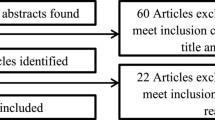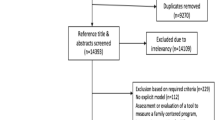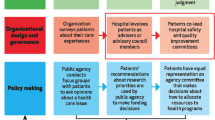Abstract
Objective
Improving health care of multimorbid older adults is a critical public health challenge. The objective of this study is to evaluate the effect of a pilot intervention to enhance the quality of primary care experiences for chronically ill older persons (Guided Care).
Design
Nonrandomized prospective clinical trial.
Patients/Participants
Older, chronically ill, community-dwelling patients (N = 150) of 4 General Internists in 1 urban community practice setting who were members of a capitated health plan and identified as being at high risk of heavy use of health services in the coming year by claims-based predictive modeling.
Interventions
Guided Care, an enhancement to primary care that incorporates the operative principles of chronic care innovations, was delivered by a specially trained, practice-based registered nurse working closely with 2 primary care physicians. Each patient received a geriatric assessment, a comprehensive care plan, evidence-based primary care with proactive follow-up of chronic conditions, coordination of the efforts of health professionals across all health care settings, and facilitated access to community resources.
Measurements and Main Results
Quality of primary care experiences (physician–patient communication, interpersonal treatment, knowledge of patient, integration of care, and trust in physician) was assessed using the Primary Care Assessment Survey (PCAS) at baseline and 6 months later. At baseline, the patients assigned to receive Guided Care were similar to those assigned to receive usual care in their demographics and disability levels, but they had higher risk scores and were less likely to be married. Thirty-one of the 75 subjects assigned to the Guided Care group received the intervention. At 6 months, intention-to-treat analyses adjusting for age, gender, and risk score suggest that Guided Care may improve the quality of physician–patient communication. In per-protocol analyses, receipt of Guided Care was associated with more favorable change than usual care from baseline to follow-up in all 5 PCAS domains, but only physician–patient communication showed a statistically significant improvement.
Conclusions
In this pilot study, Guided Care appeared to improve the quality of primary care experiences for high-risk, chronically ill older adults. A larger cluster-randomized controlled trial of Guided Care is underway.


Similar content being viewed by others
References
McGlynn EA, Asch SM, Adams J, et al. The quality of health care delivered to adults in the United States. N Engl J Med. 2003;348:2635–45.
Anderson G, Horvath J. Chronic Conditions: Making the Case for Ongoing Care. Baltimore, MD: Partnership for Solutions; 2002.
Gruenberg L, Tompkins C, Porell F. The health status and utilization patterns of the elderly: implications for setting Medicare payments to HMOs. Adv Health Econ Health Serv Res. 1989;10:41–73.
Boult C, Boult LB, Morishita L, Dowd B, Kane RL, Urdangarin CF. A randomized clinical trial of outpatient geriatric evaluation and management. J Am Geriatr Soc. 2001;49:351–9.
Reuben DB, Frank JC, Hirsch SH, McGuigan KA, Maly RC. A randomized clinical trial of outpatient comprehensive geriatric assessment coupled with an intervention to increase adherence to recommendations. J Am Geriatr Soc. 1999;47:269–76.
Cohen HJ, Feussner JR, Weinberger M, et al. A controlled trial of inpatient and outpatient geriatric evaluation and management. N Engl J Med. 2002;346:905–12.
Leveille SG, Wagner EH, Davis C, et al. Preventing disability and managing chronic illness in frail older adults: a randomized trial of a community-based partnership with primary care. J Am Geriatr Soc. 1998;46:1191–8.
Unutzer J, Katon W, Callahan CM, et al. Collaborative care management of late-life depression in the primary care setting: a randomized controlled trial. JAMA. 2002;288:2836–45.
Naylor MD, Brooten D, Campbell R, et al. Comprehensive discharge planning and home follow-up of hospitalized elders: a randomized clinical trial. JAMA. 1999;281:613–20.
Mittelman MS, Ferris SH, Shulman E, Steinberg G, Levin B. A family intervention to delay nursing home placement of patients with Alzheimer disease. A randomized controlled trial. JAMA. 1996;276:1725–31. [see comments].
Coleman EA, Mahoney E, Parry C. Assessing the quality of preparation for posthospital care from the patient’s perspective: the care transitions measure. Med Care. 2005;43:246–55.
Lorig KR, Sobel DS, Stewart AL, et al. Evidence suggesting that a chronic disease self-management program can improve health status while reducing hospitalization: a randomized trial. Med Care. 1999;37:5–14.
Lorig KR, Ritter P, Stewart AL, et al. Chronic disease self-management program: 2-year health status and health care utilization outcomes. Med Care. 2001;39:1217–23.
Phelan EA, Williams B, Leveille S, Snyder S, Wagner EH, LoGerfo JP. Outcomes of a community-based dissemination of the health enhancement program. J Am Geriatr Soc. 2002;50:1519–24.
Phelan EA, Williams B, Penninx BW, LoGerfo JP, Leveille SG. Activities of daily living function and disability in older adults in a randomized trial of the health enhancement program. J Gerontol A Biol Sci Med Sci. 2004;59:838–43.
Bodenheimer T. Disease management in the American market. BMJ. 2000;320:563–6.
Ofman JJ, Badamgarav E, Henning JM, et al. Does disease management improve clinical and economic outcomes in patients with chronic diseases? A systematic review. Am J Med. 2004;117:182–92.
Badamgarav E, Weingarten SR, Henning JM, et al. Effectiveness of disease management programs in depression: a systematic review. Am J Psychiatry. 2003;160:2080–90.
Boult C, Rassen J, Rassen A, Moore RJ, Robison S. The effect of case management on the costs of health care for enrollees in Medicare Plus Choice plans: a randomized trial. J Am Geriatr Soc. 2000;48:996–1001.
Rich MW, Beckham V, Wittenberg C, Leven CL, Freedland KE, Carney RM. A multidisciplinary intervention to prevent the readmission of elderly patients with congestive heart failure. N Engl J Med. 1995;333:1190–5.
Eng C, Pedulla J, Eleazer GP, McCann R, Fox N. Program of All-inclusive Care for the Elderly (PACE): an innovative model of integrated geriatric care and financing. J Am Geriatr Soc. 1997;45:223–32.
Newcomer R, Harrington C, Kane R. Implementing the second generation social health maintenance organization. J Am Geriatr Soc. 2000;48:829–34.
The MacColl Institute. The Care Model: Expanded Chronic Care Model. Available at: http://www.improvingchroniccare.org/index.php?p=Graphics&s=164. Accessed January 9, 2008.
Wagner EH. Chronic disease management: what will it take to improve care for chronic illness? Eff Clin Pract. 1998;1:2–4.
Ash AS, Ellis RP, Pope GC, et al. Using diagnoses to describe populations and predict costs. Health Care Financ Rev. 2000;21:7–28.
White JV, Dwyer JT, Posner BM, Ham RJ, Lipschitz DA, Wellman NS. Nutrition screening initiative: development and implementation of the public awareness checklist and screening tools. J Am Diet Assoc. 1992;92:163–7.
Folstein MF, Folstein SE, McHugh PR. “Mini-mental state”. A practical method for grading the cognitive state of patients for the clinician. J Psychiatr Res. 1975;12:189–98.
Podsiadlo D, Richardson S. The timed “Up & Go”: a test of basic functional mobility for frail elderly persons. J Am Geriatr Soc. 1991;39:142–8.
Yesavage JA, Brink TL, Rose TL, et al. Development and validation of a geriatric depression screening scale: a preliminary report. J Psychiatr Res. 1982;17:37–49.
Mayfield D, McLeod G, Hall P. The CAGE questionnaire: validation of a new alcoholism screening instrument. Am J Psychiatry. 1974;131:1121–3.
Bennett JA, Perrin NA, Hanson G, et al. Healthy aging demonstration project: nurse coaching for behavior change in older adults. Res Nurs Health. 2005;28:187–97.
Boyd CM, Boult C, Shadmi E, et al. Guided care for multimorbid older adults. Gerontologist. 2007;47:697–704.
Weiner JP, Abrams C, Bodycombe D. The Johns Hopkins ACG Case-Mix System, Version 6 Release Notes. Available at: http://www.acg.jhsph.edu/. Accessed January 17, 2008.
Sylvia ML, Shadmi E, Hsiao CJ, Boyd CM, Schuster AB, Boult C. Clinical features of high-risk older persons identified by predictive modeling. Dis Manag. 2006;9:56–62.
Safran DG, Kosinski M, Tarlov A, et al. The Primary Care Assessment Survey: tests of data quality and measurement performance. Med Care. 1998;36:728–39.
Weiss RE. Modeling Longitudinal Data. New York, NY: Springer; 2005.
Diggle PJ, Heagerty P, Liang K-Y, Zeger S. Analysis of Longitudinal Data. London: Oxford University Press; 2002.
Sofaer S, Firminger K. Patient perceptions of the quality of health services. Annu Rev Public Health. 2005;26:513–59.
Institute of Medicine. Crossing the Quality Chasm: a New Health System for the 21st Century. Washington, DC: National Academy Press; 2001.
Boyd CM, Darer J, Boult C, Fried LP, Boult L, Wu AW. Clinical practice guidelines and quality of care for older patients with multiple comorbid diseases: implications for pay for performance. JAMA. 2005;294:716–24.
Werner RM, Greenfield S, Fung C, Turner BJ. Measuring quality of care in patients with multiple clinical conditions: Summary of a conference conducted by the society of general internal medicine. J Gen Intern Med. 2007;2281206–11.
American Nurses Association: Nursing’s agenda for the future. Available at: http://nursingworld.org/MainMenuCategories/HealthcareandPolicyIssues/Reports/AgendafortheFuture.aspx. Accessed January 9, 2008.
Acknowledgment
We appreciate the administrative assistance of Sharon Kuta and Adriane King and the thoughtful comments of Dr. Rachel Levine. We thank the patients who enrolled in GC, their caregivers, the GCN, and the physicians. We acknowledge the contributions of Katherine Frey, MPH; Lisa Reider, MHS; and Carlos O. Weiss, MD, MHS, to the model of GC including the development of the care guides and personal action plans. Funding for the development and pilot-testing of GC: Johns Hopkins HealthCare contributed the funding and administrative support for the GCN, the development of the EHR, and the analysis of claims data and supported Martha Sylvia’s time. Johns Hopkins Community Physicians contributed access to patients, the efforts of the PCPs, and office space and equipment at the community-based primary care practice. The Roger C. Lipitz Center for Integrated Health Care contributed seed funding, administrative support, and support for data analysis. Dr. Boyd was supported by the Johns Hopkins Bayview Scholars at the Center for Innovative Medicine at the Johns Hopkins Bayview Medical Center.
Conflict of Interest
None disclosed.
Author information
Authors and Affiliations
Corresponding author
Rights and permissions
About this article
Cite this article
Boyd, C.M., Shadmi, E., Conwell, L.J. et al. A Pilot Test of the Effect of Guided Care on the Quality of Primary Care Experiences for Multimorbid Older Adults. J GEN INTERN MED 23, 536–542 (2008). https://doi.org/10.1007/s11606-008-0529-9
Received:
Revised:
Accepted:
Published:
Issue Date:
DOI: https://doi.org/10.1007/s11606-008-0529-9




